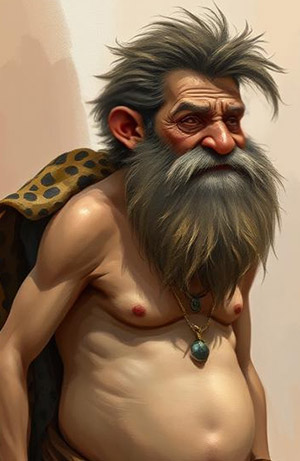Bes is a god of luck as well as a protector of women in childbirth. Many followers of the Pharaonic gods keep statues of Bes in their homes because she was considered a household protector. These statues were said to fight off evil spirits, watch after children, and aid women during pregnancy and labor.
Bes has few clerics, despite his popularity among the common people. His clerics usually earn reputations as rapscallions and scoundrels, avoiding any position of responsibility or respectability and playing tricks and pranks on people who are wrapped up in their own self-importance. They are not considered members of the priestly caste and do not conform to the standard dress for Pharaonic clerics. They dress and usually act much like the common people they serve. Most of Bes's clerics are male.
Bes has no formal temples and no formal ritual of worship. He is worshiped at household shrines and more informally in gambling halls, taverns, and roadway shrines.
Bes cares little for dogma. Gamblers alternately bless and curse his name, depending on their fortunes. Bes does not care about the morals or ethics of those who implore him for aid. He acts on whims, handing out good fortune as it pleases him and delighting like a child in the gifts offered to him.
The grotesque but cheerful Bes appears as a stunted, round-bodied and bow-legged human, about 4 feet tall. He is typically sporting a bushy beard and tail and is often wearing the skin of a panther. He is said to be so ugly that his visage scares evil spirits away. Bes loves gambling.
Bes is married to Bast (also known as Bastet, or Beset).
The origins of Bes remain obscure, but some suggest Mesopotamian or African origins, possibly connected to Pygmies a tribe of dwarfs reputed to live in Nubia (now Ethiopia). Hence the titles Lord of Punt and Lord of Nubia.


